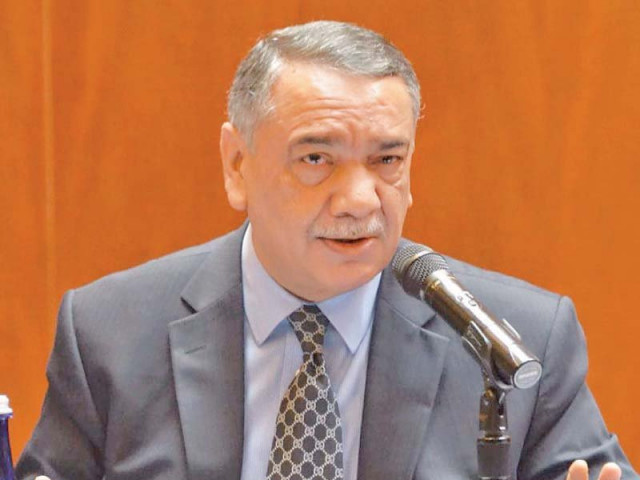Panamagate case: SC seeks evidence of Sharifs’ pre-2006 flats ownership
Asks PTI, JI to establish PM’s link with sons’ businesses

Asks PTI, JI to establish PM’s link with sons’ businesses
On Friday, the Supreme Court’s five-judge bench observed that they could not proceed over the petitioners’ allegations regarding the PM’s involvement in the business unless conflict of interest was established.
The SC bench, headed by Justice Asif Saeed Khosa, has been hearing the Pakistan Tehreek-e-Insaf’s (PTI) and Jamaat-e-Islami’s (JI) petitions that claim that the Sharif family has owned the properties through offshore companies since 1993.
BBC denies it's probing Park Lane flats report
The ruling family rejects this allegation and says that the disputed properties were acquired by them through a settlement in 2006. The family also claims that PM’s son Hussain Nawaz is the only beneficial owner of these flats.
The bench on Friday asked the JI’s counsel Taufiq Asif to assist them on three questions: When the London flats were purchased; Whether these were acquired through settlement, and what is the nexus of the PM with these properties?
When JI’s counsel contended that it was an admitted fact that the flats were purchased in 1993, Justice Khosa asked when it was established. “Would we be hearing this case for such a long time, if it was established?”
No separate oath for minority MPs, SC told
Referring to the London High Court’s 1999 verdict, he observed it was stated that ‘allegedly’ these properties are owned by Sharif family, adding that word ‘allegedly’ was used in that verdict.
Justice Azmat Saeed Sheikh observed that the PTI and JI had a different stance on the PM’s May 16 speech in parliament as the latter (JI) believes that the speech is an admission by the PM but the PTI says it is contradictory to Sharif family’s original stance.
However, Justice Sheikh remarked that they are in search of admissions in premier’s speech but could not find them, adding that law on admissions is in field for the last 100 years. He also observed that there are omissions in the speech and they cannot give verdict on assumptions
The judges also expressed anger over JI counsel’s stance that Khalid Anwar was representing Nawaz Sharif in the Zafar Ali Shah case, in which the court had validated the first military coup by Gen Pervez Musharraf.
When the counsel referred to the same judgment to establish that Sharif family was involved in money laundering and that they possessed these disputed flats since 1999, Justice Ejaz Afzal Khan observed that these were submissions by then AGP that could not be used against the respondents (Sharifs).
Reading the PM’s speech, Taufiq Asif stated that in 1980, Ittefaq factory was facing a loss of Rs60 million but the same company started earning more than 1,000 per cent in 1983, adding that profit was further increased in 1985. The counsel said Nawaz Sharif became Punjab’s finance minister in 1981.
Referring to the PM’s two interviews, Justice Khosa observed that his business and politics coexisted till 1997. However, he told the counsel that “unless conflict of interest is established, we cannot proceed further on your allegations against the PM.”
The counsel also read out oath for a member National Assembly and the prime minister. He said the PM had violated his oath by preferring his personal interest. The counsel further stated that the PM had no absolute privilege regarding his speech.
Justice Ijaz Ul Ahsan asked whether the PM‘s speech was on agenda of the parliament. “Is it proper for the PM to address parliament for giving explanation over the personal allegations against him?”
He also asked the counsel whether there is any code of conduct, which bars the PM from doing business during his office. Taufiq, however, said that there is no specific code of conduct in this regard.
The counsel also cited the SC’s verdict in Karachi target killing case, wherein the court had exercised inquisitorial jurisdiction. However, he could not satisfy the bench regarding his argument that the PM has no privilege as member parliament under Article 66 of the Constitution.
The hearing of case is adjourned till Monday.
Published in The Express Tribune, January 21st, 2017.






1724319076-0/Untitled-design-(5)1724319076-0-208x130.webp)












COMMENTS
Comments are moderated and generally will be posted if they are on-topic and not abusive.
For more information, please see our Comments FAQ